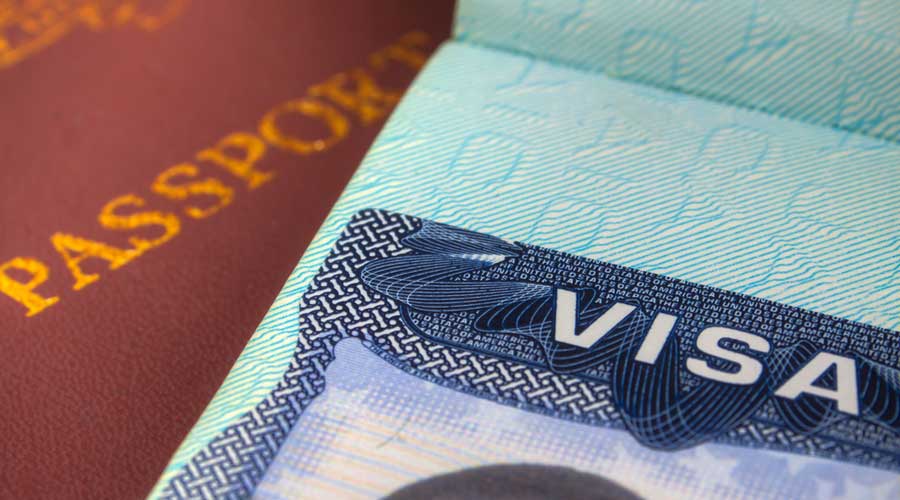The UK is said to be prepared to make visa concessions to India, including allowing young Indians to live and work in Britain for three years, in pursuit of a free trade agreement (FTA) with the country.
Britain’s international trade secretary, Anne-Marie Trevelyan, who has the support of foreign secretary Liz Truss -— the previous incumbent in the post — is set to hold talks with Delhi later this month.
Another concession could be to slash visa charges for Indian students, which can be as much as £1,400. The cost of tourist visas could also be reduced.
The logic behind the possibility of such moves was explained by a spokesperson for the department of international trade: “India is projected to become the world’s third-largest economy by 2050 and a free trade agreement will open up huge opportunities for UK businesses to trade with India’s £2.25-trillion economy.
“Companies up and down the country can look forward to the benefits, from manufacturers in the West Midlands to tech experts in Belfast, and we look forward to launching negotiations early in 2022.”
British newspapers appear to have been briefed by similar sources. For example, one government figure told The Times: “The tech and digital space in India is still hugely protectionist and if we could open up even a slither of access it would put us ahead of the game.”
The Guardian reported that “ministers are keen to ease immigration restrictions in a bid to make it easier for thousands of Indian citizens to live and work in the UK as part of forthcoming trade talks,” and that “relaxing immigration rules for Indian citizens is a key demand from Delhi”.
What the NHS needs desperately are trained doctors and nurses, whose loss — especially in the time of the pandemic — would not necessarily be in India’s interest.
Britain also has a strategic interest in doing a deal with India. According to The Guardian, “Trevelyan is said to have the backing of the foreign secretary, Liz Truss, who is keen to curb China’s growing influence in the region. However, they are likely to meet strong resistance from home secretary Priti Patel who opposes the offer.”
The paper said: “Ministers believe a trade deal with Delhi would provide British businesses with a head start in what is predicted to be the world’s third-largest economy by 2050. It could also see Britain jump ahead as India does not have bilateral trade deals with either the US or the European Union.”
Meanwhile, the Mail said: “Ministers are plotting to ease immigration restrictions that could help thousands of Indian citizens both live and work in the UK more easily in 2022.
“The move is said to be a key point that could dominate trade talks that are due to commence between the two countries in Delhi later this month.”
It added: “Indian citizens could be offered similar visa deal to those given to Australians — allowing young workers the right to live and work in Britain for up to three years. Other mooted options include slashing visa fees for Indian students, and allowing them a temporary stay in the country after graduation.”
“Ministers agree that any agreement with Delhi would provide British businesses with a huge head start in what is anticipated to be the world’s third-largest economy by 2050.
“India, largely a protectionist economy that imposes significant tariffs on imports, has discussed the possibility of loosening those restrictions for British products, including whisky which can face import duties of up to 150 per cent.
“However, the UK’s trade arm is said to view a more ambitious free-trade agreement that includes access to India’s burgeoning technology sector as its end goal.”
The department of international trade told the Mail: “A free-trade agreement (with India) will open up huge opportunities for UK businesses.”
Most callers expressed positive sentiments when the subject of visa concessions to Indians was discussed on LBC talk radio on Sunday.










